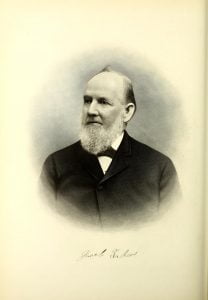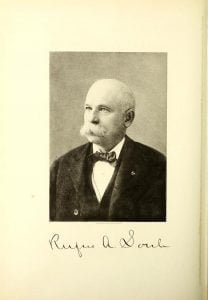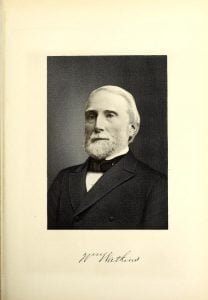The Hooper family, to which belonged the late George Mitchell Hooper, one of Bridgewater’s well-known citizens, is an old and distinguished one in New England. George Mitchell Hooper, son of Mitchell, was born in the town of Bridgewater Sept. 1, 1838. He received his education in the public schools and Bridgewater Academy, later attending Peirce Academy and the State normal school at Bridgewater, graduating from the latter institution in 1857. After leaving school he engaged in teaching, a profession he followed for one year and then began the manufacture of brick with his father, a business in which he engaged for half a century. He was also a surveyor. He was identified with the banking interests of Bridgewater, having been one of the trustees of the Bridgewater Savings Bank, also filling the office of clerk. He was clerk and treasurer of the Bridgewater Cemetery Association; a member of the Plymouth County Agricultural Association, of which for years he was treasurer, and was secretary; and trustee of the Memorial Public Library. He died July 2, 1909, in his seventy-first year. On Oct. 16, 1861, Mr. Hooper was married to Mary E. Josselyn, who was born at Hanson, Mass., daughter of Hervey and Elizabeth (Howland) Josselyn. She died Jan. 30, 1884, and was buried in Mount Prospect cemetery. Eight children were born of this marriage.




